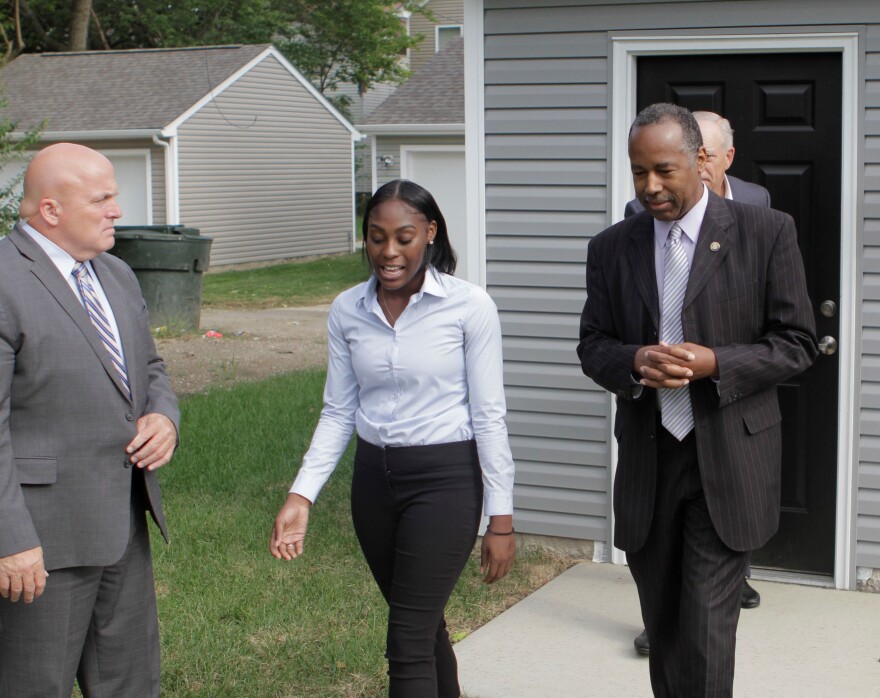Housing and Urban Development Secretary Ben Carson toured Lakeisha Terry’s home in the Milo Grogan neighborhood on Friday morning. She showed off the backyard with new sod, the garage, and her two boys’ bedroom—with wall decals of their names above their beds.
“My house is amazing, I still can’t believe it’s my house,” she said.
Carson visited Columbus to tout a federal tax incentive known as "opportunity zones." The zones are Census tracts, designated by the governor and approved by the treasury department, where private investors can avoid capital gains taxes.
If an investor maintains their stake in the area for 10 years, they won’t have to pay any taxes on the growth their investment realizes.
Terry moved into her home about a month ago thanks to a different program, the Low Income Housing Tax Credit. Carson believes the area’s opportunity zone designation will draw more investment.
“Now here’s an opportunity to take some of those unrealized capital gains, plow them back into the areas that have been economically deprived, and—why can’t everybody thrive?” Carson asked.
The opportunity zone plan is meant to enrich disadvantaged neighborhoods, but some of the zones designated in Ohio (such as the Ohio State campus) are already flush with private investment. Carson, whose office isn’t responsible for selecting or signing off on the designations, waved off the examples.
“I would want to hear the rationale—what was the governor thinking about that, and was there some domino effect that he was looking at?” Carson said. “Are there some economic statistics that he knows about that perhaps aren’t apparent? So, I’d give him the benefit the doubt before I’d criticize.”
Bruce Luecke, President and CEO of the non-profit housing developer Homeport, explains his organization has financed homes like Terry’s for more than 30 years with the help of programs like the Low Income Housing Tax Credit. He seems optimistic about opportunity zones, even if it’s still unclear how big a lift the program might provide.
“I don’t know yet,” he said. “To tell you the absolute truth, I don’t know yet, because we are having more and more discussions with partners—for profit, non-profits to look at more holistic ways to attack neighborhoods.”
For her part, Terry is just excited to have the room she needs for her boys in a neighborhood she loves.
“We have the Milo community center right here,” she said, pointing out a window. “My son attends Trevitt Elementary School, so everything is pretty much in the area for me especially for me as a mom of two, so you know everything’s right there, that’s what I love about it.”






